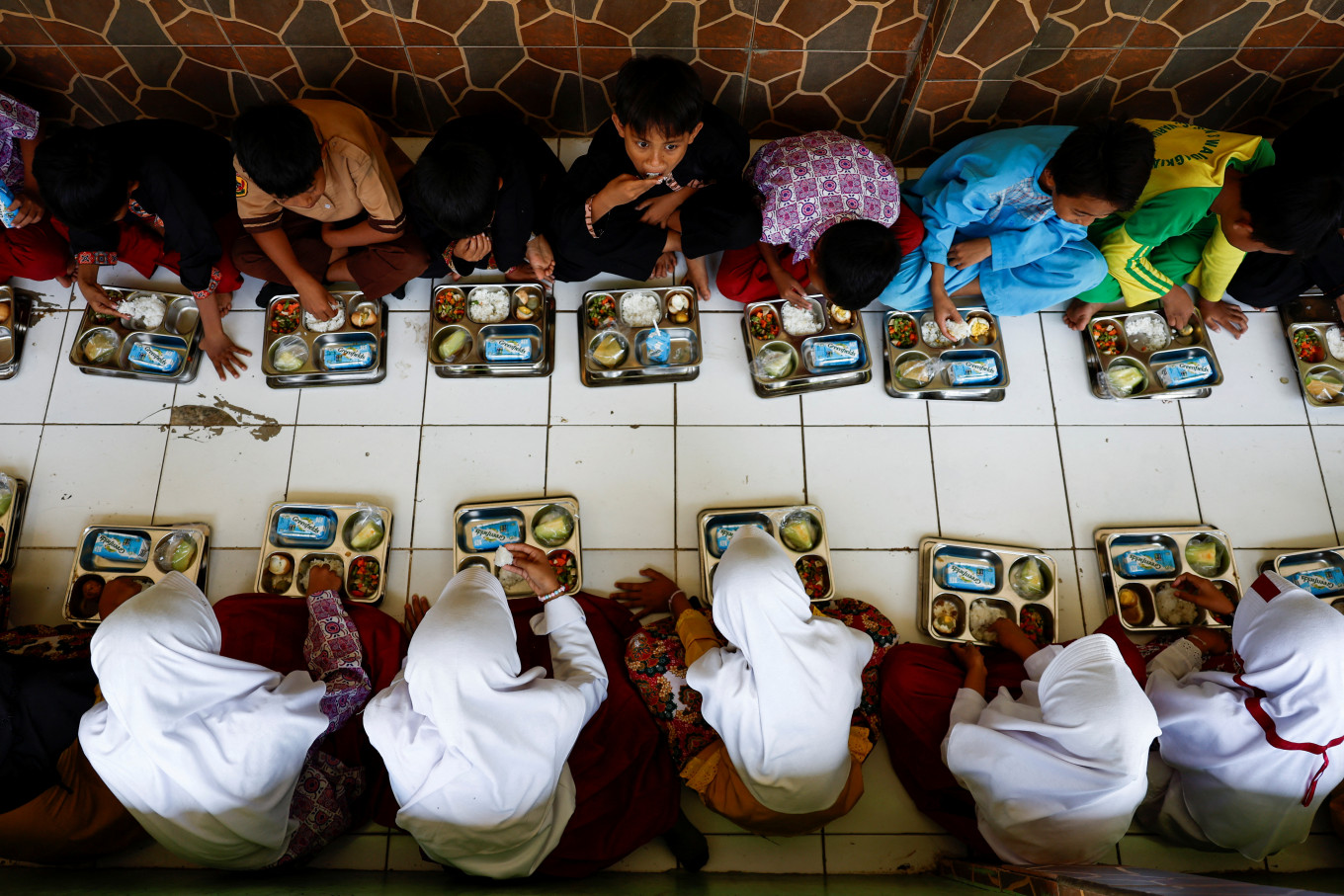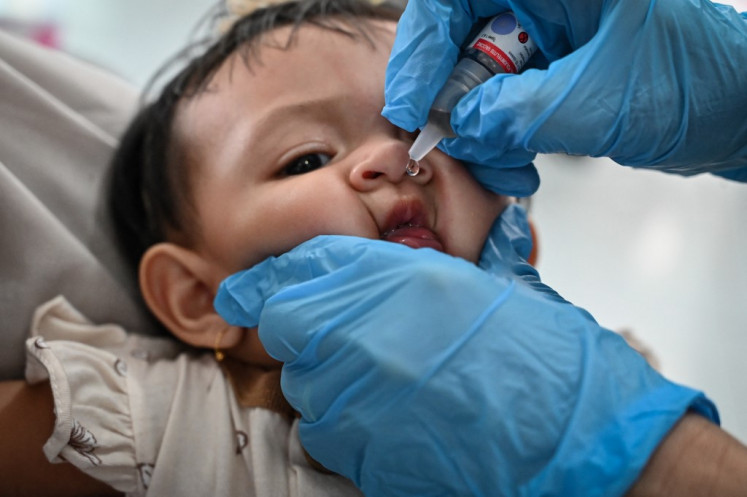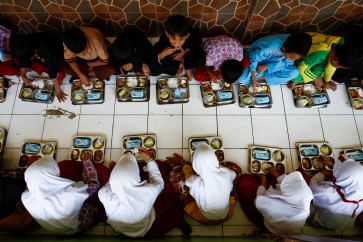Popular Reads
Top Results
Can't find what you're looking for?
View all search resultsPopular Reads
Top Results
Can't find what you're looking for?
View all search resultsToward food sovereignty: Optimism in the new government
Recent studies In Jakarta revealed that 91 percent of food packaging contained harmful chemicals like PFAS, raising public health concerns.
Change text size
Gift Premium Articles
to Anyone
T
he establishment of the Office of the Coordinating Food Minister, a new portfolio in the cabinet announced by President Prabowo Subianto on Sunday, comes at a crucial time as the new government prepares to launch a nationwide free meals program for schoolchildren.
This initiative not only aims to improve child nutrition, but also addresses broader food security issues across the country. However, for the program to succeed, the ministry must swiftly overcome the fragmented food governance structure, which currently involves overlapping agencies such as the Food and Drug Monitoring Agency (BPOM), the Health Ministry, the National Logistics Agency (Bulog), the National Food Agency and the newly established National Nutrition Agency (BGN).
Without clear coordination among these bodies, inefficiencies will continue to undermine efforts to secure the nation’s food supply.
While immediate results are needed, such as the rollout of the free meals program, the new ministry will also require time to build a skilled team. Experts from these various agencies need to come together to form a cohesive unit capable of tackling Indonesia’s food system complexities. Failure to do so risks the ministry falling into the same traps of redundancy and mismanagement that have plagued the sector for years.
Recent crises, such as the rice shortage in early 2024, highlight the urgent need for reform. Triggered by El Niño, this shortage affected regions like East Java and Sumatra, forcing the government to import large quantities of rice to stabilize domestic markets. Prices surged, exposing Indonesia’s heavy reliance on food imports, which exacerbated concerns about the nation’s food security. This incident revealed the vulnerability of Indonesia’s food supply chain and underscored the need for a centralized approach to managing food availability, safety and distribution.
Another pressing issue lies in the inconsistencies within food regulations. In Jakarta, recent studies revealed that 91 percent of food packaging contained harmful chemicals like PFAS, raising public health concerns. The BPOM stepped in with new regulations, but the lack of coordination among regulatory bodies allowed these hazardous materials to persist in the food supply chain. These examples emphasize the need for unified oversight to address regulatory gaps and ensure public safety.
The new office’s immediate task should be to recruit experts from key agencies, including the BPOM, the Agriculture Ministry, Bulog and the BGN, forming a joint task force to oversee both the free meals program and broader food security initiatives.



















